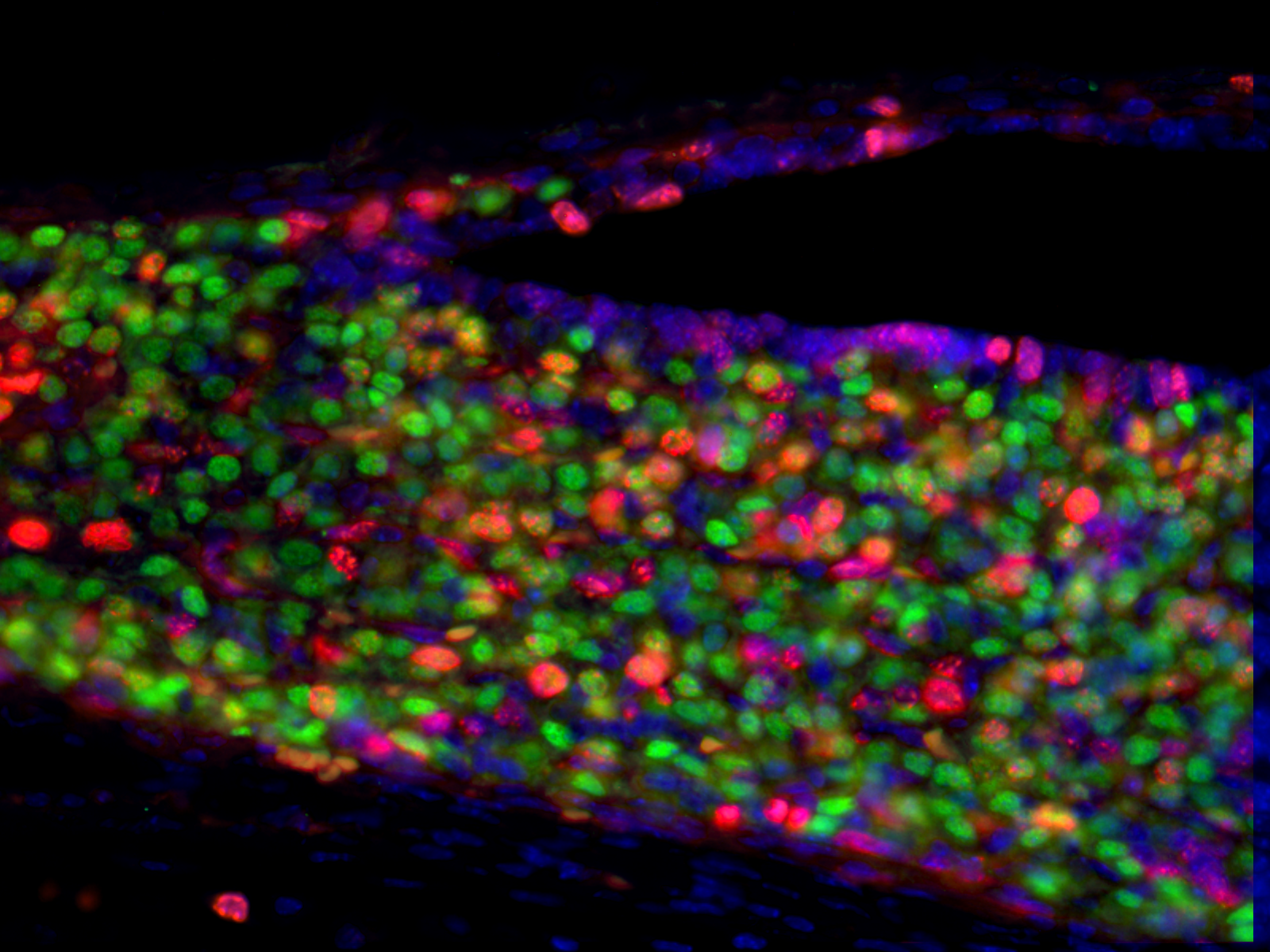PhD students enter the Department of Molecular & Integrative Physiology after completing core courses and laboratory rotations in Molecular and Cellular Biology. Our program provides a solid background in molecular, cellular, comparative, and integrative physiology through two core courses in Cellular Physiology (MCB 401) and Systems and Integrative Physiology (MCB 402). The students, in consultation with a faculty advisory committee, choose additional courses in chemistry, mathematics, biochemistry, immunology, molecular biology, and other areas of biology to complete at least six additional credits. Students are also trained in the responsible conduct of research (MCB 580).
Six hours are required. Note that F and S indicate typical offerings in Fall or Spring but are subject to change.
MCB 400: Cancer Cell Biology 4 hr (F)
MCB 401: Cellular Physiology
MCB 402: Systems and Integrative Physiology
MCB 408 Immunology 3 hr (S)
MCB 410 Developmental Biology 3 hr (S)
MCB 413 Endocrinology 3 hr (F)
MCB 429 Cellular Microbiology & Disease 3 hr (S)
MCB 431 Microbial Physiology 3 hr (F)
MCB 432 Computing in Molecular Biology 3 hr (S)
MCB 442 Comparative Immunobiology 4 hr (S)
MCB 461 Cellular and Molecular Neuroscience 3hr (F)
MCB 465 Human Metabolic Disease 3 hr (S)
MCB 462 Integrative Neuroscience 3hr (S)
MCB 480 Eukaryotic Cell Signaling 3hr (S)
MCB 509 Current Topics in Molecular and Integrative Physiology 2 hr (F,S)
MCB 540 Scientific Writing 3 hr (F)
MCB 571 Bioinformatics 4 hr (F)
Journal-Club/Seminar Format:
MCB 493 Special Topics Mol Cell Biol*(F,S)
MCB 529 Special Topics in Cell Devel Biol*(F,S)
MCB 530 Reproductive Physiology Seminar 1 hr (F,S)
*NEURO 520 Advanced Topics in Neuroscience (F,S)
*Various sections with variable hours. Approval of DGS is required to receive credit toward the required 6 hours.
Laboratory Format:
BIOC 455 Techniques Biochem & Biotech 4 hr (S)
Additional courses may be substituted pending approval of the DGS and Courses and Curriculum Committee.
In addition, numerous seminars covering special topics in physiology are offered. Students may also take courses in other departments, including Biochemistry, Cell & Developmental Biology, Computer Sciences, Electrical and Computer Engineering, Microbiology, Psychology, and Veterinary Biosciences.
